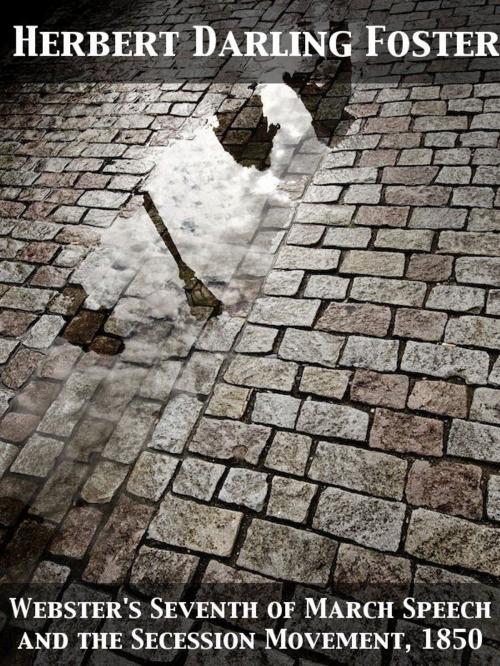| Author: | Herbert Darling Foster, Nathaniel Wright Stephenson | ISBN: | 9782819933847 |
| Publisher: | Release Date: November 27, 2011 | Publication: | November 27, 2011 |
| Imprint: | pubOne.info | Language: | English |
| Author: | Herbert Darling Foster, Nathaniel Wright Stephenson |
| ISBN: | 9782819933847 |
| Publisher: | Release Date: November 27, 2011 |
| Publication: | November 27, 2011 |
| Imprint: | pubOne.info |
| Language: | English |
It is very curious that much of the history of the United States in the Forties and Fifties of the last century has vanished from the general memory. When a skilled historian reopens the study of Webster's “Seventh of March speech” it is more than likely that nine out of ten Americans will have to cudgel their wits endeavoring to make quite sure just where among our political adventures that famous oration fits in. How many of us could pass a satisfactory examination on the antecedent train of events— the introduction in Congress of that Wilmot Proviso designed to make free soil of all the territory to be acquired in the Mexican War; the instant and bitter reaction of the South; the various demands for some sort of partition of the conquered area between the sections, between slave labor and free labor; the unforeseen intrusion of the gold seekers of California in 1849, and their unauthorized formation of a new state based on free labor; the flaming up of Southern alarm, due not to one cause but to many, chiefly to the obvious fact that the free states were acquiring preponderance in Congress; the southern threats of secession; the fury of the Abolitionists demanding no concessions to the South, come what might; and then, just when a rupture seemed inevitable, when Northern extremists and Southern extremists seemed about to snatch control of their sections, Webster's bold play to the moderates on both sides, his scheme of compromise, announced in that famous speech on the seventh of March, 1850?
It is very curious that much of the history of the United States in the Forties and Fifties of the last century has vanished from the general memory. When a skilled historian reopens the study of Webster's “Seventh of March speech” it is more than likely that nine out of ten Americans will have to cudgel their wits endeavoring to make quite sure just where among our political adventures that famous oration fits in. How many of us could pass a satisfactory examination on the antecedent train of events— the introduction in Congress of that Wilmot Proviso designed to make free soil of all the territory to be acquired in the Mexican War; the instant and bitter reaction of the South; the various demands for some sort of partition of the conquered area between the sections, between slave labor and free labor; the unforeseen intrusion of the gold seekers of California in 1849, and their unauthorized formation of a new state based on free labor; the flaming up of Southern alarm, due not to one cause but to many, chiefly to the obvious fact that the free states were acquiring preponderance in Congress; the southern threats of secession; the fury of the Abolitionists demanding no concessions to the South, come what might; and then, just when a rupture seemed inevitable, when Northern extremists and Southern extremists seemed about to snatch control of their sections, Webster's bold play to the moderates on both sides, his scheme of compromise, announced in that famous speech on the seventh of March, 1850?















